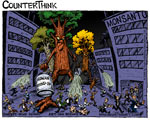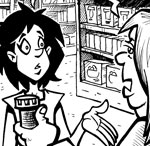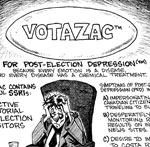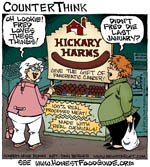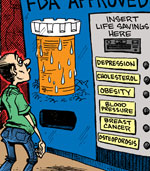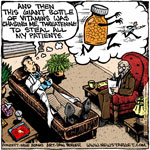Supplemental Zinc Side Effects
| Share on Facebook | Share on Twitter | Share on Google+ |
Do not get the wrong idea though, zinc is not medication, nor is it something you should avoid. In fact, you should always make sure that your diet includes proper amounts of zinc.
Zinc is an essential mineral that is needed by your body to manufacture about 300 enzymes. Each of these enzymes have diverse processes and functions such as cell reproduction, immunity, protein synthesis, wound repair, vision, free radical protection and immunity.
Zinc Nutrition
Fortunately, a healthy daily diet can provide you with just enough zinc that you need. It is found in ordinary foods that we take such as red meat, sea foods and poultry. Oysters are the most excellent zinc sources. If you are not much into meats or seafood, other good sources include beans, whole grains, dairy products, cereals and nuts. However, zinc absorption is more effective if they come from animal proteins than from plant sources.
The Recommended Dietary Allowance of zinc varies, but generally about 9-11 milligrams is enough for adults. However, the truth of the matter is that only about 30% of the zinc that you intake can get absorbed by your body. Many factors can interfere with zinc absorption such as phytates in your brain and fibers. If your body cannot absorb as much as it needs, you may need to take zinc supplements in order to prevent zinc deficiency.
Who Needs Zinc Mineral Supplements?
To date, there is yet a laboratory test that can exactly measure how much zinc your body needs. But if you experience symptoms such as diarrhea, lesions, loss of appetite, growth retardation (in children), hair loss, delays in wound healing, taste abnormalities and so on, your doctor might suspect you to have some form of zinc deficiency. If so, he would most probably advise you to take zinc supplements.
Zinc supplements have also been seen to be effective in shortening cold symptoms, reduce the severity of cold sores, increase energy levels, treat ADHD in children, fighting hair loss and managing conditions such as hypoglycemia and diabetes.
Side Effects of Zinc Supplement
The danger of taking zinc supplements can be summarized in two words: zinc overdose. A zinc dose of 40 milligrams is approved safe to use by FDA and a zinc dosage more than this can pose certain risks.
In terms of zinc toxicity, there is no other way to put it: excess zinc is dangerous! This is primarily true because too much zinc will likely interfere with the metabolism and absorption of other essential minerals in your body, most especially iron, magnesium and copper. Zinc side effects can become potentially serious if you take doses from 150 to 450 mg a day. Taking this much can decrease your copper, iron and magnesium levels, reduce your body's immune function, and reduce your HDL (good cholesterol) level.
Zinc Sulfate Side Effects
Oral zinc sulfate supplements can also cause side effects such as stomach upset, heartburn and nausea. Rare side effects have also been reported and these include fever, sore throat, mouth sores, weakness and fatigue.
Zinc is a very important mineral but you only need to take just enough. If you decide on taking mineral supplements for one or more reasons, it is very important that you consult your doctor first and report whatever zinc side effects you experience.
-
Skin CareMen Skin Care
-
Free ResourcesFree eBooks
-
You can free yourself from aging by reinterpreting your body and by grasping the link between belief and biology.Deepak Chopra
-
Featured Health SupplementYou will find highly beneficial ingredients in Total Balance
 which are quite rare in other supplements either due to cost, or the need to protect them via enteric coating. Such as L-Glutathione, Resveratrol, RNA, ATP…and many more.
which are quite rare in other supplements either due to cost, or the need to protect them via enteric coating. Such as L-Glutathione, Resveratrol, RNA, ATP…and many more.
-
